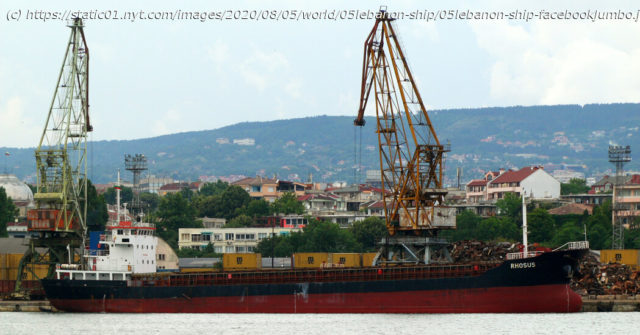The bleak tale of an indebted cargo vessel and its disgruntled crew is where a story of chronic negligence starts. It ended Tuesday in a giant explosion.
The countdown to catastrophe in Beirut started six years ago when a troubled, Russian-leased cargo ship made an unscheduled stop at the city’s port. The ship was trailed by debts, crewed by disgruntled sailors and dogged by a small hole in its hull that meant water had to be constantly pumped out. And it carried a volatile cargo, more than two thousand tons of ammonium nitrate, a combustible material used to make fertilizers — and bombs — that was destined for Mozambique. The ship, the Rhosus, never made it. Embroiled in a financial and diplomatic dispute, it was abandoned by the Russian who leased it. And the ammonium nitrate was transferred to a dockside warehouse in Beirut, where it would languish for years, until Tuesday, when Lebanese officials said it exploded, sending a shock wave that killed more than 130 people and wounded another 5,000. The story of the ship and its deadly cargo, which emerged on Wednesday in accounts from Lebanon, Russia and Ukraine, offered a bleak tale about how legal battles, financial wrangling and, apparently, chronic negligence, set the stage for a horrific accident that devastated one of the Middle East’s most fondly regarded cities. “I was horrified,” said Boris Prokoshev, the ship’s 70-year-old retired captain, about the accident, speaking in a phone interview from his home in Sochi, Russia. In Lebanon, public rage focused on the negligence of authorities who were aware of the danger posed by the storage of 2,750 tons of ammonium nitrate in a warehouse on the Beirut docks, yet failed to act. Senior customs officials wrote to the Lebanese courts at least six times from 2014 to 2017, seeking guidance on how to dispose of the ammonium nitrate, according to public records posted to social media by a Lebanese lawmaker, Salim Aoun. “In view of the serious danger posed by keeping this shipment in the warehouses in an inappropriate climate,” Shafik Marei, the director of Lebanese customs, wrote in May 2016, “we repeat our request to demand the maritime agency to re-export the materials immediately.” The customs officials proposed a number of solutions, including donating the ammonium nitrate to the Lebanese Army, or selling it to the privately owned Lebanese Explosives Company. Mr.






